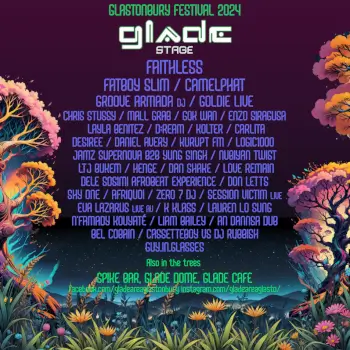-
Recently Browsing 0 members
- No registered users viewing this page.
-
Latest Activity
-
By Mark E. Spliff · Posted
So long as you requested your bus via the transport survey before April 15th, you're all good - there haven't been any confirmation emails yet -
Did some digging online. Well, you did ask. There isn't much there that's very recent. An application for planning permission for "use of land for siting of up to 16 low impact residential shelters within a woodland garden setting and associated operational development comprising car park, telephone box, and children's play structure" was rejected in 1999 - though apparently there was a "legal breakthrough" in 2001. This is from 1995: Clearly it's still in use. A resident called Theo Simon stood for election to the local council (for the Green Party) in 2017. His band, Seize the Day, seems to play Glastonbury every year (at Toad Hall, Small World, sometimes other sets elsewhere). This is a video of their 2019 set: There's an interview with him, probably filmed at Kings Hill, here. He sounds pretty cool if you ask me. https://www.futurelearn.com/info/courses/why-religion-matters/0/steps/73899 This is from a university thesis submitted in 1999: The King’s Hill Collective The King’s Hill Collective can be seen as solution to increasing pressures of living on the road for Travellers who were bringing up children and as a solution to (and rejection of) mainstream consumerist society by non Travellers many of whom were originally city dwellers. Nevertheless because many of the members had direct travelling experience, this community provided an example of one extreme in a continuum between those Travellers for whom the tag ‘New Age’ is a complete irrelevance and those for whom it is at least understandable if not desirable. This group is on the ‘New Age’, ecologically aware, ideologically ‘hippie’ and ‘sorted’ end of the New Age Traveller continuum discussed in the previous chapter. The site, which overlooks Pilton farm (the site of the Glastonbury Festival), is slowly maturing now with numerous trees, vegetables and a fully functioning water bore hole which supplies the site with drinking water. Water is extracted on a weekly basis using an old petrol engine and pump. The water, which is filtered by a series of sand traps, is inspected on an annual basis. The collective is concerned to demonstrate its willingness to 243adhere to regulations were this is possible and not contrary to its collective ideology. There are 16 plots, each at some stage of the development of the site, having a bender. The benders are almost exclusively constructed of light green Tarpaulin over a hazel wood matrix. Stainless steel flexi-vents lead from stoves in the benders. These act as chimneys supported by a single branch driven into the earth. The stoves are usually home-made conversions of gas cylinders which have been cut and welded into shape although there was an solid fuel Rayburn installed in one bender during the study period. Inside the benders bedding is arranged on wooden pallets or platforms and there is often an additional gas stove for cooking. Water is supplied either directly from the holding tank or stored in water barrels. Lighting is almost exclusively by candles or ‘hurricane lamps’. Twelve volt batteries and in one case a wind generator supplies electricity for radios and in one case a small black and white television. Some of the more established benders had a variety of trees and shrubs around the canvass construction including apple, pear and fig trees as well as a variety of fruits. The collective is serviced by a pay telephone located in an old red telephone box. Its position, in the middle of a field, is as incongruous as the lamp post in C.S. Lewis’s Narnia books and is in a way reminiscent of the TARDIS of Doctor Who, adding to the slightly surreal or magical atmosphere of the place. Inside a small domestic pay phone is installed and managed by one of the community. At the centre of the site is a clearing of grass that acts as a communal area surrounded by a small circular mound inside of which runs a circular ditch in the fashion of a place of worship. In the centre of the circle is a small collection of sea stones collected from a nearby shoreline. There are four gaps in the mound representing the solstices and equinoxes, which correspond to the cardinal points of the compass. Each section of the mound was constructed during the period of the year that it represents. There are symbols representing Beltane and other significant calendar dates placed appropriately on the circle. The King’s Hill site owes its existence to Chris Black, a man who was broadly sympathetic to alternative lifestyles and provided initial financial support to the project. Chris Black purchased the field and ‘loaned’ sixteen plots to a number of Travellers and bender dwellers. The newly formed community developed a ‘constitution’ and organised a system whereby the loan of the plots was paid back over a period of two years through weekly contributions to a central fund. Thus after two years the land belonged to sixteen stakeholders.
-
K.O.G. were one of my favourite acts at EOTR a couple of years ago. Just a joyful afrobeat danceathon
-
Can tell you about a 1.5k ticket if you're interested lad? Not more at face value I don't think, sorry! Although if I hear owt else back I'll drop you a message
-
-
Latest Festival News
-
Featured Products
-

Monthly GOLD Membership - eFestivals Ad-Free
2.49 GBP/month
-
-
Hot Topics
-
Latest Tourdates















Recommended Posts
Join the conversation
You can post now and register later. If you have an account, sign in now to post with your account.